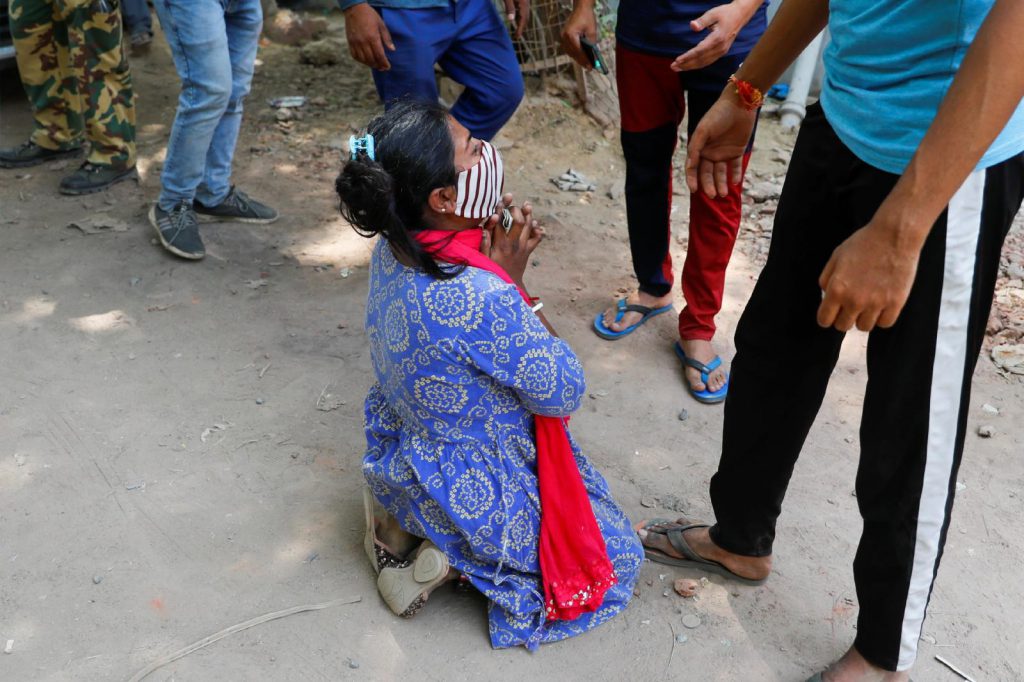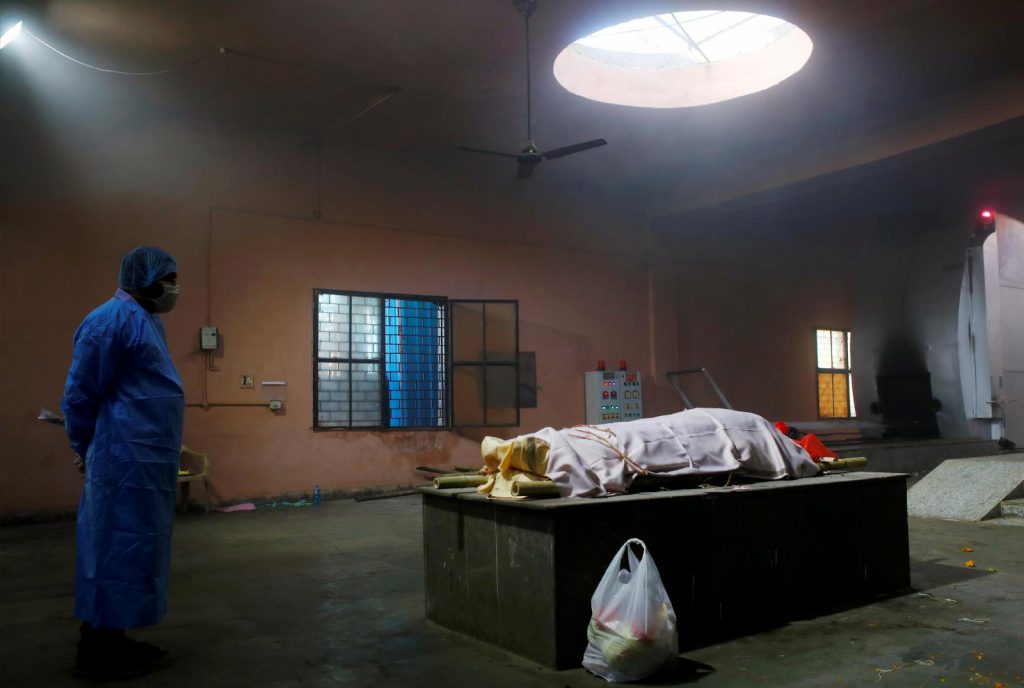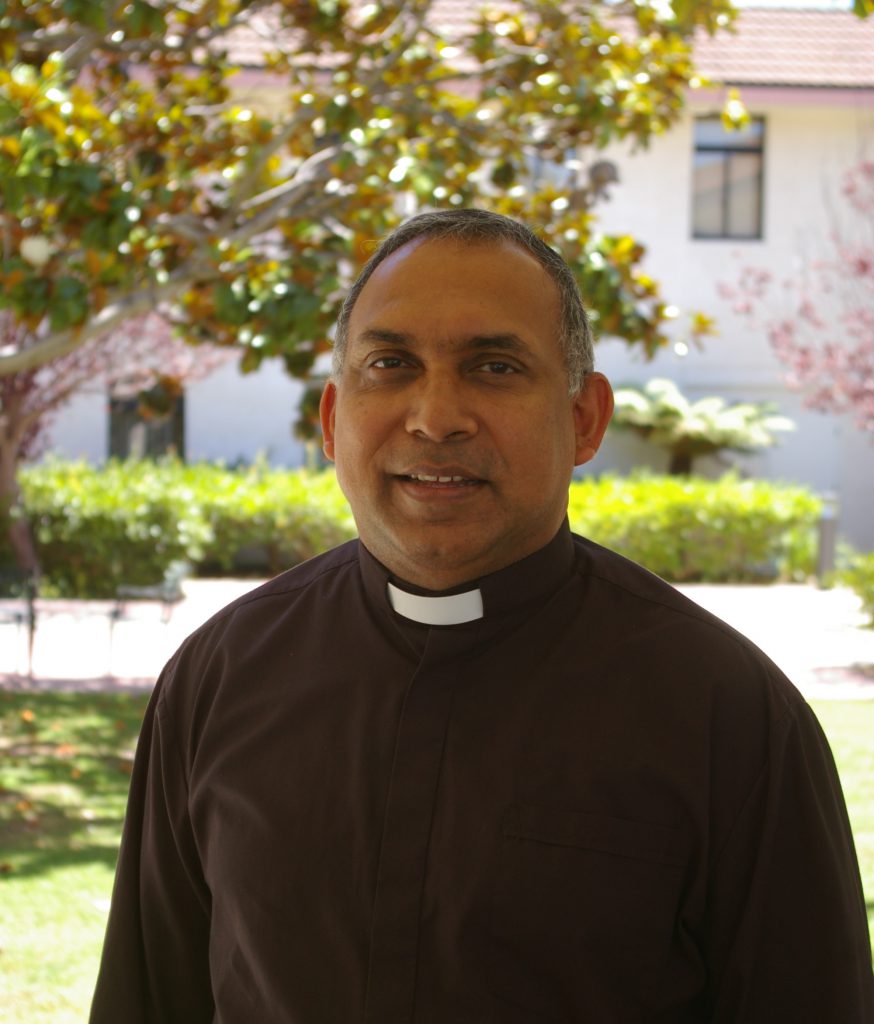SAN DIEGO — For almost 20 years, the Society of the Divine Word has been operating a unique program for poor children in the slums of Indore, Madhya Pradesh, India.
The Bridge School program is one of several initiatives offered through the Divine Word Missionaries’ Jan Vikas Society, an organization dedicated to human development.
Father Roy Thomas, who serves as director of the Jan Vikas Society, said the Divine Word Missionaries identified what they believed to be the most marginalized social group in Indore: female “waste-pickers” who eke out a living by roaming the streets, collecting recyclables and any other items that can be sold to support their families.
It was noticed that many of the children of these waste-pickers weren’t getting an education, but rather were either working as waste-pickers themselves or were being exposed to the sorts of dangers faced by unsupervised children on the streets, including addiction to drugs and alcohol.
Members of the staff of the Jan Vikas Society conduct a survey every year, going house to house in the slums, to determined how many children are not going to school. They meet with the parents and seek to persuade them to enroll their children in the Bridge School program.
This can be challenging, admitted Father Thomas, because many of the parents are illiterate, don’t place much value on education, and appreciate the additional income that comes from their children’s waste-picking. The children themselves can take convincing, too, because many enjoy working and are loathe to give up their sense of freedom.
The Bridge School program gets its name from the fact that it serves youth who have either dropped out of school or have never attended and are therefore several years behind academically.
“We are bridging the gap” in their education, Father Thomas said.
He explained that youth attend the Bridge School for one to three years, depending on how far behind they are in their studies. After passing an exam, they are transferred to the proper grade level at one of the public or private schools.
The Bridge School program educates about 400 to 500 children every year.
The program currently operates about 20 educational centers, serving children between the ages of 6 and 12. At each of the centers, a trained teacher works with about 20 to 30 children, who are provided with all of the required materials, including books, notebooks, pencils, school uniforms and even shoes.
Father Thomas said the school schedule is different from that of a more traditional school because its students don’t have the experience of attending classes for a full day. At some locations, classes are held in the morning; at others, in the afternoon. But they do not last longer than five hours. And the teaching style is also different.
He said the schools take a “learn with fun” approach that utilizes things like rhymes, games, music and dancing to keep the students interested.
The program also tries to expose the children to a world beyond the slums.
Father Thomas said that, every three months, there are field trips to a police station, post office, bank, or other government agency. Picnics are held once or twice a year. Career guidance and a presentation on the dangers of social media are also annual offerings.
The Bridge School program does not teach the Catholic faith and, because of government restrictions on evangelization and proselytism in India, it is not permitted to do so. The vast majority of the students are Hindus, with some Muslims as well.
Father Thomas said that the Bridge School program encountered some skepticism in its early days, with people wondering about the motives of those running the school and about whether they were seeking to convert the students.
He recalls one incident when, during an educational center’s inaugural program, many came to protest the center. He himself was physically at risk.
“If I had remained there for a few minutes more, they would have finished me off,” said Father Thomas, who added that the program doesn’t experience opposition anymore.
He explained that the majority of the staff is composed of Hindus, who speak up in defense of the program.
Now, two decades in, he said, “We are well-known in the city and people have accepted us.”
The program may not preach the Catholic faith, but it lives it through service.
“Jesus said, ‘Anything that you do to the least of My brothers, you are doing it unto Me.’ So, therefore, whatever we are doing to the poor people, we are doing to Jesus, and we are carrying out His mission.”









